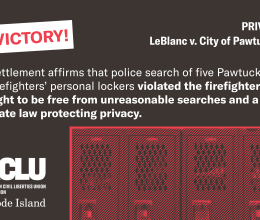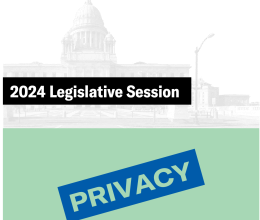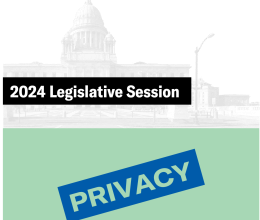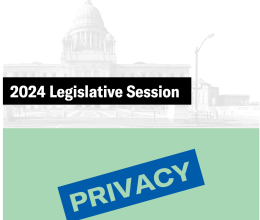The ACLU of Rhode Island today filed a complaint with the Division of Public Utilities and Carriers, calling for an investigation of recent allegations that Verizon and AT&T have improperly shared telephone records with the National Security Agency. The complaint was one of twenty filed across the country by ACLU affiliates today in response to the burgeoning spy agency scandal.
A May 11th article in USA Today reported that AT&T and Verizon (along with BellSouth) provided the NSA with the personal calling details of millions of residential phone customers, including telephone numbers called, time, date, and direction of calls. The companies allegedly provided this information without either customer consent or court order.
The RI ACLU complaint notes that the customer information provided to the NSA “can be easily matched with other databases to obtain the name and residence of each caller. This information would enable the government to track virtually every phone call made by Rhode Island residential customers, including the identity of the people they have called and the length of each conversation.” The complaint called the companies’ release of the data a “systematic and flagrant violation of their customers’ privacy rights.”
The complaint to the DPUC argues that sharing of the phone record information also violated AT&T and Verizon’s own customer privacy agreements. The “Customer Info Guide” found in the Verizon White Pages for Providence states that “Verizon is committed to maintaining high standards for the protection of customer privacy,” and specifies that non-consensual disclosure of information is made only where “required by law” and when “necessary to comply with court orders and subpoenas.”
The ACLU complaint called the data sharing allegations “too serious and too well-founded to be dismissed without a thorough investigation.” The letter cites a number of state laws that the release of the information may have violated, including a statute barring “unreasonable” practices or acts by public utilities, a prohibition on deceptive advertising practices, and “carefully crafted standards contained in state law that were clearly designed to limit the disclosure of telephone information.”
Noting that two other public utilities commissions in New England – Maine and Vermont – had already begun investigating these allegations, the ACLU called on Rhode Island’s DPUC to do the same and to order a halt to any violations of the law if either company is found to have engaged in misconduct.
RI ACLU executive director Steven Brown said today: “Rhode Islanders deserve answers to the very troubling allegations that have been raised about Verizon and AT&T’s collaboration with the NSA to spy on American citizens. We are hopeful that our complaint will prompt a thorough investigation.”








